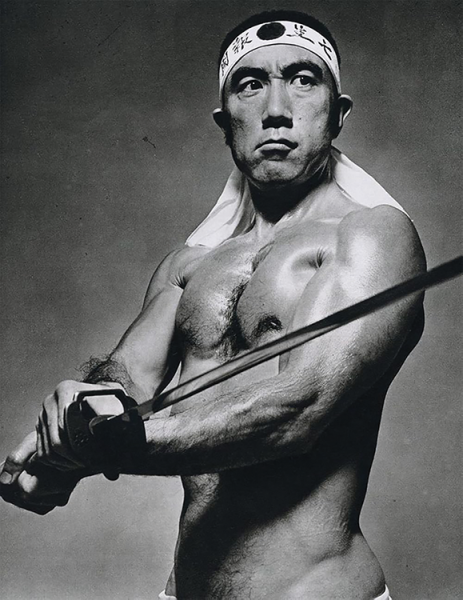Yukio Mishima is one of the most famous novelists of Japan and one of the most fascinating figures of the 20th century. A controversial and powerful figure, he was not only an author but a poet, playwright, model and self-made military man.
Mishima is totally unique in that his life was just as interesting as his novels. He never became confined to living through his characters but rather lived up to everything he wrote.
Mishima is most famous for the historical action he made at the end of his life. On Nov. 25, 1970, Mishima and his personal military staged a coup in a military base in Tokyo.
After unsuccessfully trying to convince the Japanese military to overthrow the 1947 constitution, he took his own life by committing seppuku ( a ritualistic suicide practiced by samurai).
To most Western audiences, this action, and the idea of suicide is shocking and abhorrent, but to Mishima, this was the most honorable and beautiful death he could imagine. The suicide was the culmination of his life’s work.
Mishima believed in many Shintoist and nationalist Japanese ideals that were slowly dying out in the 20th century. One of the texts central to his philosophy was the Hagakure, the warrior code of the samurai.
The code of the samurai blends spirituality with a warrior mentality and puts honor above everything else. The samurai is expected to die for his cause, as his own life is subjected to a higher ideal.
This type of transcendental warrior ethic was still possible before the constitution of 1947, which declared the emperor was no longer divine. To Mishima, this meant a total loss for Japan and started its descent into materialism. To that end, his ritual suicide was a last effort in rebellion to harken back to this earlier time.
One of the most radical parts of Mishima’s philosophy is the total integration of body and mind. As a young child, he was sickly and as a writer, he saw himself as cut off from real life by words.
In order to remedy this, Mishima took up bodybuilding and traditional martial arts. This created a tension in him between the warrior spirit and the spirit of the scholar, which contributed to his great vitality as a writer and public figure.
Mishima’s philosophy of bodybuilding and scholarship is espoused in his essay “Sun and Steel.” It comes as a solution to his thinly veiled autobiographical novel “Confessions of a Mask”, where he depicts himself as a sickly young boy struggling with his sexuality and identity in WWII Japan.

Mishima’s writing comes out with full force and vitality and is at one time beautiful and tender and at another time terrifying. He explores the depths of the uncomfortable side of life, human relationships, and sexuality.
At all times, there is a contrast between death and the beautiful, which reflects the nature of Japanese society. This is the society of samurai and kamikaze, but also of tea rituals and flower arranging.
The fragility of life and its closeness to death makes it all the more beautiful. Mishima’s goal as a bodybuilder was also to reflect this: he wanted to make himself as beautiful as possible before death.
A couple of notable books that deal with themes of beauty, obsession and death are “The Temple of the Golden Pavilion” and “The Sailor Who Fell from Grace with the Sea.”
In “The Temple of the Golden Pavilion”, Mishima’s neurotic main character becomes so obsessed with the titular temple as his ideal form of beauty that he destroys it. The book is based on true events, the burning of the Reliquary of Kinkaku-ji in Kyoto by a Buddhist acolyte in 1950.
This is the first book I read by Mishima and probably the best one to read if you want to read just one book. Sometimes Mishima’s descriptions become dense but overall it is very compelling.
“The Sailor Who Fell from the Sea” is a strange family story of a son whose mother falls in love with a local sailor. As the sailor gives up his life on the sea, the son and his band of friends seek to exact a punishment on him.
To the boy, the life of a sailor represents a type of heroism and open life where death may come at any moment, and he has fallen out of grace in his role by accepting a comfortable life with a wife and children. This novel is also in David Bowie’s top 100 books.
When I first read this book, I was shocked by the ending, but looking back I may be able to understand it more. The book calls upon g the sailor as an archetype that I’ve also seen referenced in books like Moby Dick and in some of Jim Morrison’s lyrics.
I find it’s impossible to study Mishima without coming back inspired. As a multivariate person, he lived his life to the fullest in every area of life, and had strong convictions that transcended his own self.
Mishima is a powerful figure because he subverts the norms and expectations of our modern materialist society. He challenges people to live in a way that confronts death with their whole being. For this reason, he is one of my favorite authors.
Sonnek can be reached at sonnekrl6881@uwec.edu











